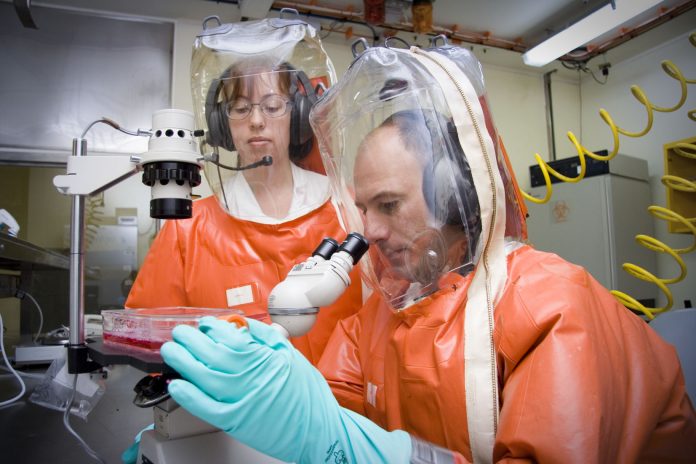A HUMAN disease pandemic is a biosecurity threat for Australia, Geelong researchers have found.
The warning was contained in Australian Animal Health Laboratory’s (AAHL) contribution to a new report outlining 12 potential biosecurity “mega-shocks” for the country.
AAHL director Professor Kurt Zuelke warned Australia against becoming complacent amid increasing biosecurity challenges.
He called for a “coordinated approach involving government, industry, scientists and the general public” to manage biosecurity threats.
AAHL science director Dr Gary Fitt said pre-emptive action to avoid biosecurity issues was better than dealing with the consequences.
“Dominating the news right now is the Ebola virus crisis, which is an obvious global health concern,” he said.
“Meanwhile, farmers near Katherine, in the Northern Territory, are dealing with an outbreak of a new disease – cucumber green mottle mosaic virus – and, while not fatal to people like Ebola, this virus is devastating their crops, which has severe financial impacts.”
Dr Fitt said the report, Australia’s Biosecurity Future, identified issues in protecting Australia over the next 20 to 30 years, including its economy.
“If there was a significant decline in European honey bee populations across Australia in the future, for example, this would impact our economy with losses of around $4 billion to $6 billion,” he said.
The report also identified “global megatrends” of change and complexity in dealing with biosecurity challenges.
Dr Fitt said the mega-trends included the need to produce more food for growing populations while managing pressure on natural resources.
Geelong researchers warn of bio ‘mega-shock’

Digital Edition
Subscribe
Get an all ACCESS PASS to the News and your Digital Edition with an online subscription
East Belmont and North Geelong to meet in A Grade final
North Geelong won its way through to the Geelong Cricket Association women’s A Grade grand final and will play East Belmont on Sunday 8...








